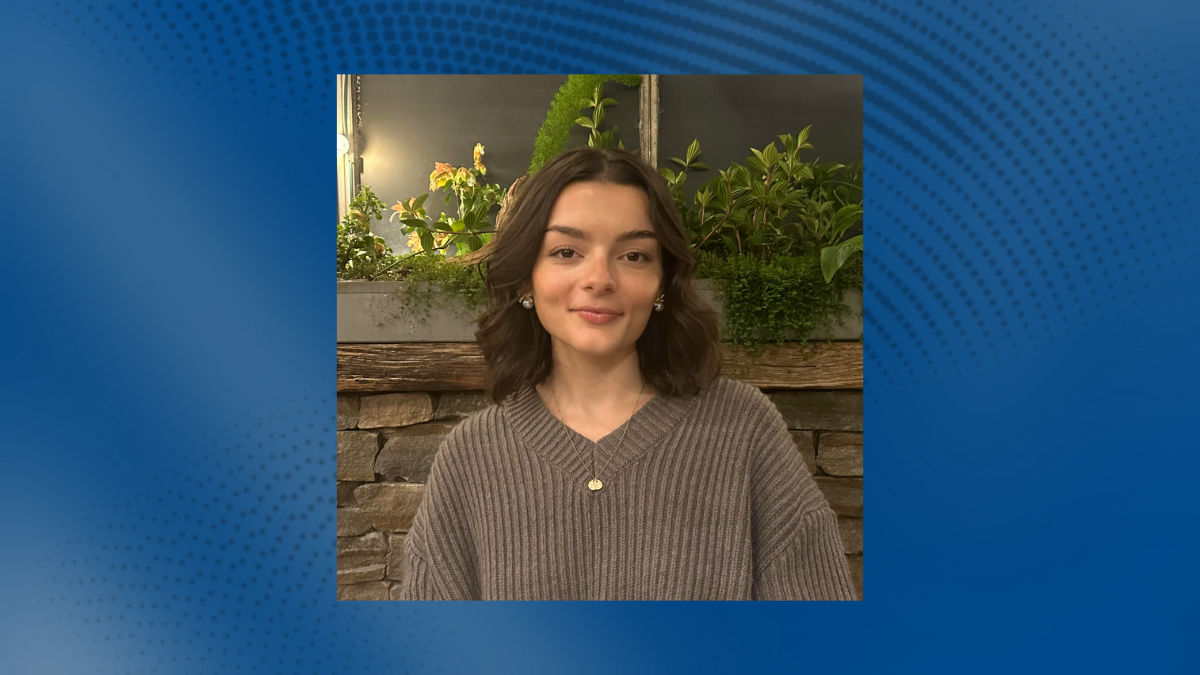Studying the Transition to College

CEHD McNair Scholar Victoria Visconti studies the residential transition to college
As the summer season comes to an end, undergraduates across the country are preparing an exciting move to the University of Delaware and other college campuses. For many freshmen, this transition marks the first time that they will live away from home, which brings both new opportunities and challenges.
Victoria Visconti, a senior in the College of Education and Human Development’s (CEHD) human services program, was interested in this transitional time period in young adulthood, especially from the perspective of supporting young people’s mental health and wellbeing. Through the McNair Scholars program, she pursued a summer research project on this topic with Sara Goldstein, professor in CEHD’s Department of Human Development and Family Sciences, and Kate Riera, assistant professor in HDFS.
“The project we are working on is a pilot study for a longer longitudinal study we will begin this fall,” Visconti said. “For this first phase of the research, we collected data from 40 first-year, first-time residential college freshmen and 30 parents of first-year, first-time residential freshmen. My job on the team was to take the transcribed student interviews and analyze them using a coding scheme curated by the team. We looked at various themes, including independence, relationship transitions, and social and emotional adjustment.”
The goal of the larger study, titled “Launching Adolescents, Understanding College Health” (LAUNCH), is to fill a gap in the field of human development on the transition to residential college life from the perspective of young people and their parents. Goldstein, Riera, Visconti and their research team hope that the results from the study will help equip professionals working with students—such as mental health counselors, professors and academic advisors—with the knowledge and tools to better support their students during this transitional period.
“Having just been in the position of the participants a few years ago, this project was so fun and interesting to work on,” Visconti said. “I learned a lot about the college transition period from other students’ points of view, considering that everyone has a unique story to tell. I was also able to expand my knowledge on conducting research as a whole and got to see what building a research project from the ground up looks like. This was such a great experience for me and I’m excited to continue working with Dr. Goldstein and the rest of the team this fall!”
“It has been a pleasure to work with Vic on this research project and in the capacity of the McNair Scholars program,” Goldstein said. “Vic’s thoughtful contributions to our lab and to the LAUNCH study are very appreciated. I am thrilled that she will stay involved in the research during her senior year as we continue with the project.”
The project also aligns well with Visconti’s personal career goals. She is completing a pre-social work/counseling concentration within the human services program and a minor in psychology. After graduation, she plans to pursue a master’s degree in clinical mental health counseling and become a licensed clinical therapist.
“I actually didn’t become a human services major until my sophomore year,” Visconti said. “I knew what I wanted to do when I graduated, but I wasn’t entirely sure how to get there. My academic advisor was really helpful and pointed me toward the human services track, which was the best way for me to reach my goals after college. Going into my final year, I am so glad I picked UD, and I wouldn’t change anything.”
About the McNair Scholars program
The federally-funded McNair Scholars program prepares undergraduate students for graduate degree studies through involvement in research and other scholarly activities. McNair participants are either first-generation college students with financial need or members of a group that is traditionally underrepresented in graduate education and have demonstrated strong academic potential. Through a collaborative mentoring environment and simulated graduate school experiences, students gain the competencies needed to graduate as distinguished scholars with enhanced communication, leadership, intercultural, research methodology and critical thinking skills.
Article by Jessica Henderson. Photo courtesy of Victoria Visconti.



